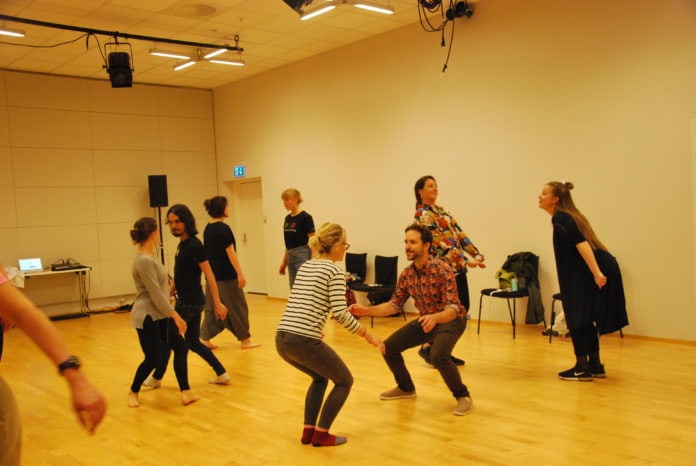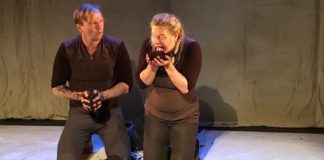In this roundtable, that was subsequently followed by a workshop, Isabelle Verlaine (from Belgium), allowed us to delve into the complex question of how an adult Actor can play a child effectively. Verlaine co-founded the company, ‘Comagnie de la Casquette‘ in 1983 and sees her role as being an ‘Actor-Creator’. Through her company, Verlaine has created numerous shows as a Writer, Actor, and Director – and sees these professional disciplines as being inherently collaborative positions.
During the roundtable, the group discussed questions such as, “What characteristics don’t work when watching Actors playing children onstage?” There was general consensus that performances tend to be better when adults playing children don’t overdo clichés such as putting on an annoying voice, moving on their knees, or acting up stereotypes.
However, an interesting discussion was raised around this point about clichés. It was asked whether a performance could begin with a clichéd stereotype but move away from it as the performance unravels. After all, it was concluded, stereotypes exist for a reason. And yet, it was pointed out, we need to question who ‘the’ stereotypical child might be when all children are so very different. And so the discussion moved only whether a performance would do better to focus on the smaller identifying features of a child, such as an individual child’s rhythm. However, one issue that was raised, which I found particularly interesting, was the difficulty of playing a child whilst maintaining stillness.
In the discussion, we talked a lot about how to ‘be’ a child rather than how to ‘play’ a child. This is an important distinction because we often present child characters onstage which appear to be very different from the direct, lived experiences of childhood. It was generally agreed that is important to really focus on what being a child feels like, rather than jumping ahead and trying to ‘represent’ the child too quickly without an exploration of lived experience. In this way, the workshop really focused on how we can ‘be’ rather than ‘play’ a child. It emphasised focusing on feeling and staying in the moment rather than being driven towards ‘acting’ or ‘becoming’ something you are not.
Playing a Child as an Adult
The Complex Question of How an Adult Actor Can Play a Child Effectively































